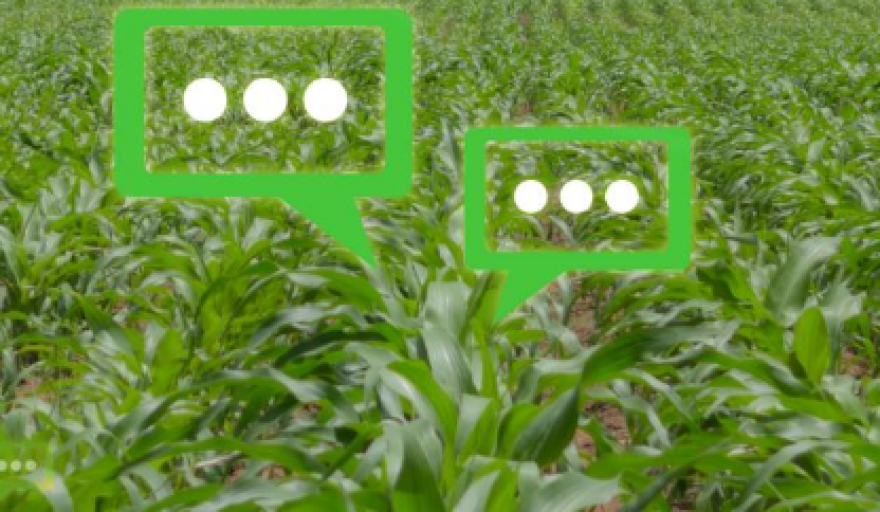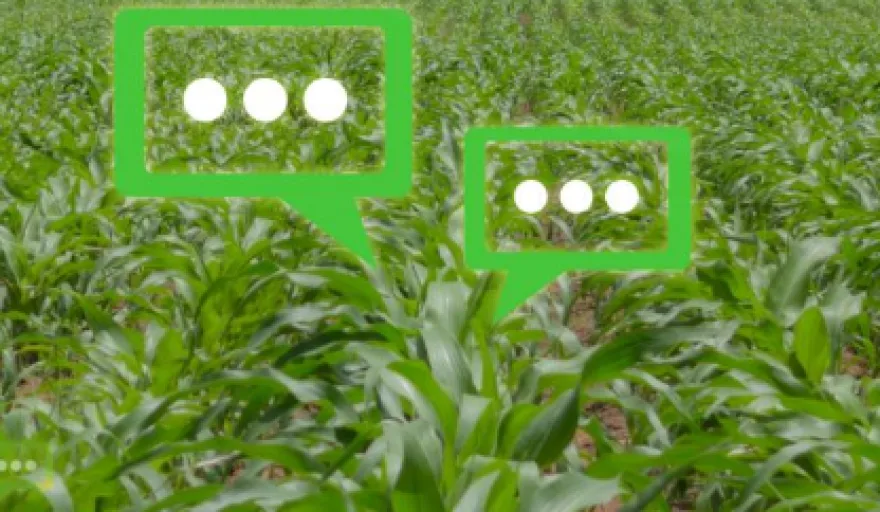
With almost all available arable land in the Americas, Europe and Asia already productively farmed using the most developed agricultural techniques, Africa, with 60 percent of the world’s uncultivated arable land, presents a major opportunity to meet the 70 percent increase in global food demand expected by 2050.
Land aside, however, Africa presents a further opportunity for growth – by dramatically increasing yield.
Currently the continent’s use of traditional small-scale farming techniques returns the lowest yield per hectare globally, especially amongst the cereals and pulses that underpin the foundations of global food security.
While fertiliser, improved agricultural cultivation and livestock practices as well as better seed (biotech) can help improve yields, by far the biggest opportunity within the grasp of African agriculture lies in ‘agritech’, the intelligent use of data enabled by new digital technologies.
In short, the excitement and the opportunity for African agriculture is in the data. Information is the key to realising Africa’s vast agricultural potential, and digital technologies are merely the tools that will deliver the information.
Given that information is key, what technologies are most appropriate to supply Africa’s largely small-scale, poorly-capitalised, infrastructurally-underdeveloped and climatically-challenged farmers with the information they need to transform yields?
Standard Bank’s satellite hosted-remote sensing innovation, delivered in partnership with Origin Enterprises PLC and the European Space Agency, AgSpace Agriculture, is an aggregated remote sensing information platform with a complete suite of farm monitoring tools.
Using algorithms to analyse and interpret images, Contour/Grid shares data on local weather, soil moisture, field accessibility and leaf wetness, while also providing optical satellite monitoring of area planted, germination and growth progress. This enables growth stage assessments, yield prediction and ultimately yield-enhancement through an easy-to-use three colour rating code – green for good, amber for middling and red for challenged, depending on the factor being measured.
This agritech innovation allows Standard Bank to monitor crop performance on all sizes of farms and fields in all geographic regions. Contour/Grid also provides monitoring on an aggregated basis across regions, enabling portfolio tracking on total hectares under a specific crop and total tonnes of inputs used.
While this information is of huge value in driving the efficiency and productivity of individual farmers, Contour/Grid also enables Standard Bank to identify which fields in a farming area are the best performing. This allows the bank to assess budgets against actual yield predictions and also enables the bank to aggregate this information across wide areas, and work this back to the portfolio of clients that we are supporting.
Contour/Grid further enables Standard Bank to manage the financial risks associated with delivering agricultural finance. Real-time visibility of crop performance affords constant updates of all Standard Bank agricultural clients and potential clients, including detailed information on crop development. This builds trust and transparency between the bank and customers, enabling the bank to correctly assess risk and accurately allocate capital and cover.
Origin Enterprises PLC is also developing an African crop growth index for maize, soya wheat and other crops to provide greater performance predictability over time.
Another Standard Bank agrictech innovation is Contour and Contour Mobile, a digital customer platform and mobile app providing precision farming tools facilitating customer creation, field mapping, agronomic planning and recording, and crop and input allocation. Clients can use the information to understand the health of a crop, do water and spray planning, determine flood areas, understand ground conditions – such as soil health and moisture levels – and also monitor weather. The data that Contour provides clients enables farmers to make better decisions while mitigating risks and improving yield through optimised operations.
It is important for Standard Bank to be able to assist farmers in improving yield through relevant information that can provide a view on plant health or development issues with a specific crop. The weather module, able to predict the next 10 days’ weather, for example, is invaluable for making crop-enhancing decisions around planting time. These technologies ensure that the crop is protected and, from a banking perspective, allows any yield (and thus income) increases to be used for either credit repayment or expansion of the agricultural business.
Similarly, if agronomists or the extension officers of agricultural aggregators dealing with small scale farmers are able to receive digital information on soil moisture, fertility and type, historical rainfall patterns and yield per hectare, or if they are able to identify pests and diseases remotely, they can help small scale farmers to increase yield, boost income, access more capital and equipment, expand the area under cultivation or even identify new markets.
Beyond this, however, information can also inform appetite. For example, if banks and agricultural equipment sellers know what and how much is planted when and where, banks can extend loans, predict income, manage risk and insurance. Similarly, agricultural suppliers can target informed equipment or irrigation product offerings, at the correct time, to the right farmers at the right price.
While the current technology appears sophisticated, it is very easy to use. As our experience in Africa has shown, there is a big opportunity for small scale farmers in outgrower programmes supplying large corporates. The corporate that has signed up for the service simply opens the service to all its small-scale suppliers who are then easily able to access all the information required via their mobile phones.
Even without changing existing value chains in Africa, merely having more and accurate information on what is going on in these chains presents an immediate opportunity to service, fund, support, risk-manage and supply Africa’s small-scale farmers with a range of services, insights and networking opportunities.
From the farmer’s perspective, the data will dramatically increase yield and boost offtake while enriching the efficiency and relevance of Africa’s entire agricultural supply and value chains.
About the author
Abrie Rautenbach joined Standard Bank in 1996 and is responsible for all AgriBusiness on the continent outside of South Africa (14 Countries). He has 23 years in banking and financial services including long-term assignments outside of South Africa in West and East Africa, including heading up Business Banking in Ghana at Standard Bank.
Rautenbach started his career in the bank as an Agricultural Advisor for the Free State Province. Prior to joining Standard Bank, he was an Agricultural Economist, for both the Meat Board, looking after the pork industry, and then moving to the Wheat Board in South Africa.






























